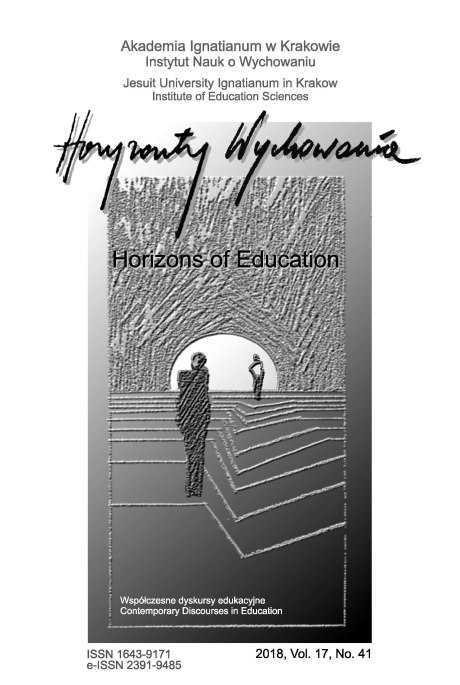Wychowanie dla pokoju versus wychowanie do wojny. Wartości uniwersalne wobec wyzwań globalnych
Education for Peace versus Education for War Universal Values Against Global Challenges
Author(s): Jerzy MenkesSubject(s): Education, Peace and Conflict Studies
Published by: Uniwersytet Ignatianum w Krakowie
Keywords: Peace; education for peace; universal values; freedom of speech;
Summary/Abstract: RESEARCH OBJECTIVE: The aim is to present the results of a legal analysis of the implementation of universal values as an instrument to meet the threats to peace. THE RESEARCH PROBLEM AND METHODS: The research problem is the analysis of the possibilities of implementing the universal value of peace by using the instruments of education for peace that states and other international actors offer the UN System. The legal research methods were used, and particular importance was given to institutional and functional analysis. THE PROCESS OF ARGUMENTATION: The argumentation is divided into three parts. The purpose of the first is to identify the process of assigning human values and peace to a superior value in the universal system of values. In the next one, norms and institutions that set the legal framework for education for peace and the prohibition of pro-war propaganda were identified and subjected to critical analysis. Part three is devoted to the identification of institutions and norms that constitute a barrier to education for war. RESEARCH RESULTS: The analysis shows that at the universal level legal the instruments for education for peace and preventing the creation of attitudes enabling the war are sufficient. The barriers to efficiency arise from the level of internalization values and confrontation with attitudes and values identified with the interest of the state. CONCLUSIONS, INNOVATIONS, AND RECOMMENDATIONS: The goal of protecting future generations from the defeat of the war, which set the axiological basis of order after the WWII, was not implemented. The following armed conflicts have been preceded by the dehumanization of the enemy and the relativisation of human rights. This speaks for the widening of new actors and deepening of international cooperation in the area of education for peace.
Journal: Horyzonty Wychowania
- Issue Year: 17/2018
- Issue No: 41
- Page Range: 215-223
- Page Count: 9
- Language: Polish

